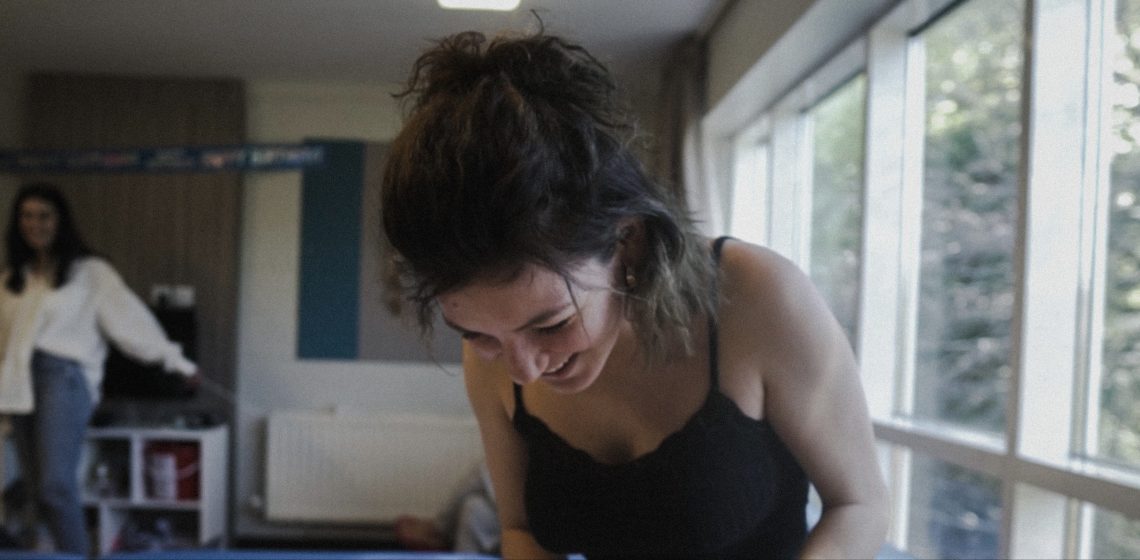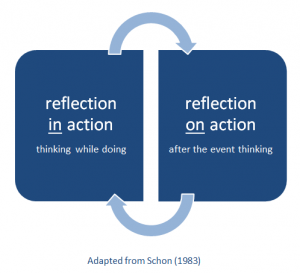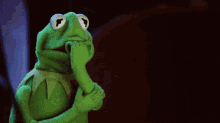
Surprisingly Worthwhile
Interviews have never been my favourite. If I were pressed to determine why, I think it’s probably something to do with the PTSD of sitting in the manager’s office in McDonald’s, hoping to get a handy summer job, only for the interview to be cut short almost immediately once I revealed my holiday plans. Or it could be due to the incredibly awkward application process for GAME, which consisted of odd team building tasks that resulted in my desire to be the successful candidate evaporating into non-existence. Or the false hope lent to me from my interviews with Sainsbury’s, OutsideIn, Spar…you get the point. Long story short: I’ve never gotten a job that I’ve interviewed for. All the ‘work’ I’ve done seems to have come about through word-of-mouth or someone stumbling upon my portfolio, rather than any ability to wow an employer through a formal interview process. So, if I were to say that I wasn’t exactly looking forward to this exercise in Week 3, I think the evidence presented above would convince you I’d be telling the truth.
Using Schön’s model of self-reflection [1], which distinguishes between reflection during and after an experience, I will evaluate the Simulated Interview process based on the initial preparation stage and how I performed in hindsight.

Reflection in Action
I found preparation for this exercise somewhat challenging. I think my main issue with preparing for the interview was not knowing which areas I should focus on. Should I pay more attention to myself or the work that I’ve done? The dreaded ‘Tell me about yourself’ question among others filled me with doubts over whether I should be reviewing my personality or figuring out how I would suit the role.

With regards to this, I believe the format of the process helped clarify these concerns. Being able to choose a real job that real people applied for was a massive help, as it gave me a form of limitation – a boundary that I could use as a yardstick which would inform where I focused my efforts. Reflecting on how I felt at the preparation stage, I feel the job description I chose gave me a good platform to talk about a variety of my strengths and how my experience would set me up to succeed in the role. It also helped that I had actually applied for that job only a week or two prior (spoiler alert: I didn’t get it).
Sticking to a job description, rather than going in blind to the interview and being bombarded with questions not necessarily relevant to my future plans, was beneficial for me in this process. While I was still relatively confused as to how to prepare for the main event, I knew that if I studied the job description religiously then this would stand me in good stead. In Week 1 of the semester, Emma Lennox stressed the importance of researching the company and subsequently the ideal candidate they were looking for. I made sure to visit the company’s LinkedIn page, which stated: ‘we believe that your business has a story to tell, and that can be captured using our video strategy’. This stuck out to me as something I could refer to during the interview and that I could relate my own storytelling experience through documentary to the company’s needs, which would hopefully impress my interviewer counterparts.
Reflection on Action
When it came to the interview session, I drew the short straw of going at the end. As someone who prefers to get things like this over with as soon as possible, this was less than ideal for me. In reflection however, it did prove to be a blessing. Being the last subject to be interviewed, I was able to familiarise myself with the format of the process and observe how my peers conducted themselves. I noticed that some of them struggled to communicate exactly what they wanted to in their answers and ended up stuttering over their words. Using the advice given in Week 1’s lecture, I decided in the moment that I would pause before answering, and when I did answer that I would repeat the phrasing of the question at the beginning. Despite this feeling somewhat counter-intuitive and awkward, I trusted that this would be the optimal way that I could communicate in a professional manner and develop my verbal presentation skills. Comparing my feelings to the peer feedback forms confirms this, as I was commended for having a ‘very calm and steady flow of words’, in addition to being well-paced and confident in my answers.
Going into the simulated interview, I was worried that I wouldn’t be able to convey my passion as effectively as I would like. I expected to stutter over the personal questions which would then throw me off my game when it came to answering the important, role-specific ones. This thankfully wasn’t the case. I knew how important it would be to convince the interviewers that I had a passion for storytelling and that I took pride in my work. The final question set me up perfectly for just that.
What is your greatest achievement to date?
Without hesitation, I dove into my experience working on my second-year documentary project, entitled When Mum Talked to the Lamp. The story was about a young girl who recalls her experiences growing up with a mother suffering from schizophrenia and how she channelled the ups and downs of their relationship into a published book. During filming, I had the privilege of capturing Nelly’s immediate reaction as she received her book in the mail for the first time. This served as a postscript to the film, a final emotional punch that conveyed exactly what we wanted to convey. During my interview, I recalled this experience of shooting this scene and the joy it brought me as a filmmaker. I also mentioned the pride I felt when showing the final film to various groups of people. The spontaneity and vitality of my answer surprised even myself and, according to the feedback, impressed my interviewers. My peers remarked on the ‘lovely honesty’ and passion it displayed and how it ‘left a lasting impression on all involved.’ I’ll take that.
In conclusion, analysing my performance retrospectively has shed new light on my ability to communicate professionally in an interview context. I believe that stepping out of my comfort zone and confronting the uncomfortable nature of the job interview has, as Schön propagates, shown me the importance of learning through doing. Only when you put yourself through the challenge of tasks like this can you progress as an individual and as a professional. In reflection, I deem this experience as a success that will hopefully prepare me for the working world.
References
[1] Schön, Donald, The Reflective Practitioner (Ashgate, 1983).
You May Also Like

The interview may have been simulated, but the anxiety was real!
21 February 2022
9 February 2022

